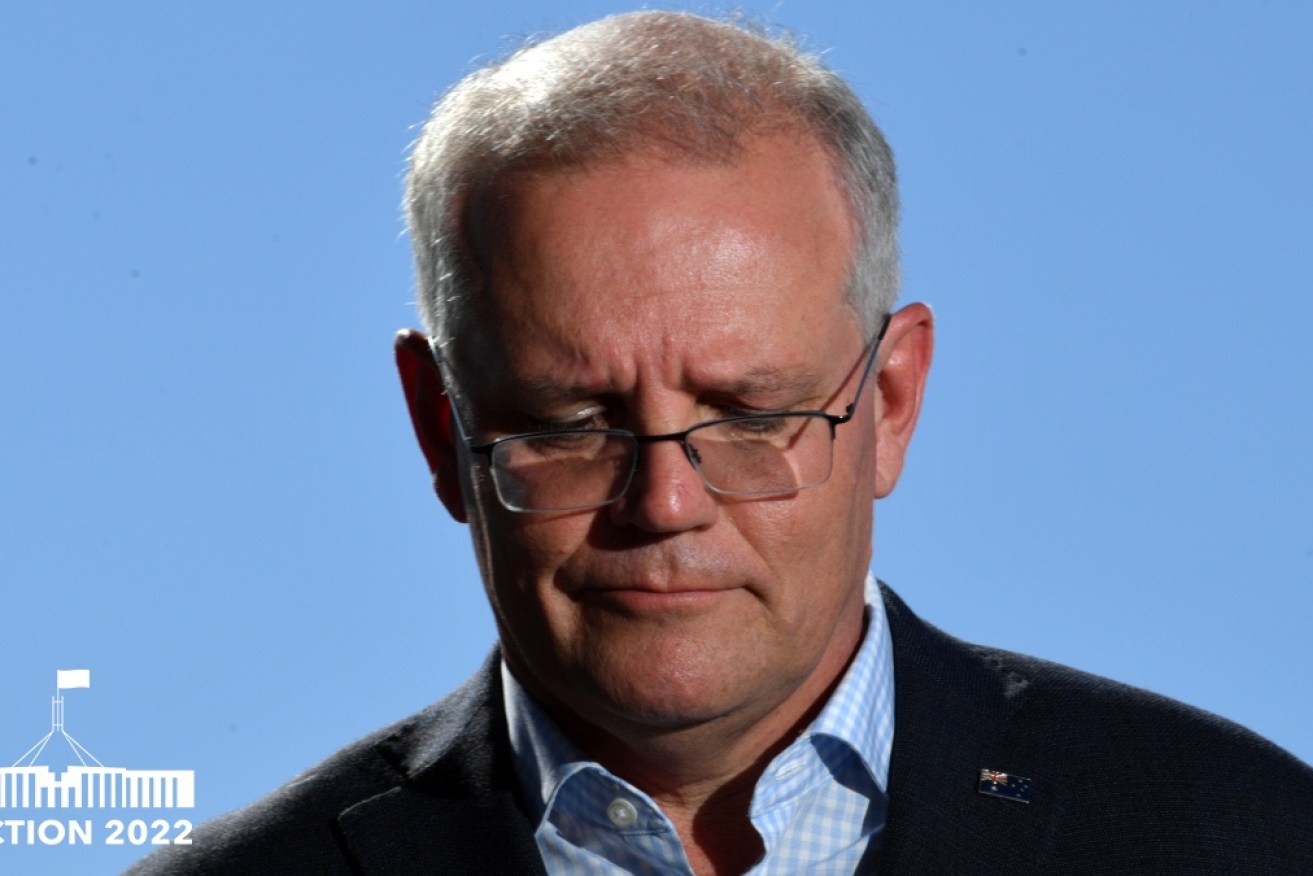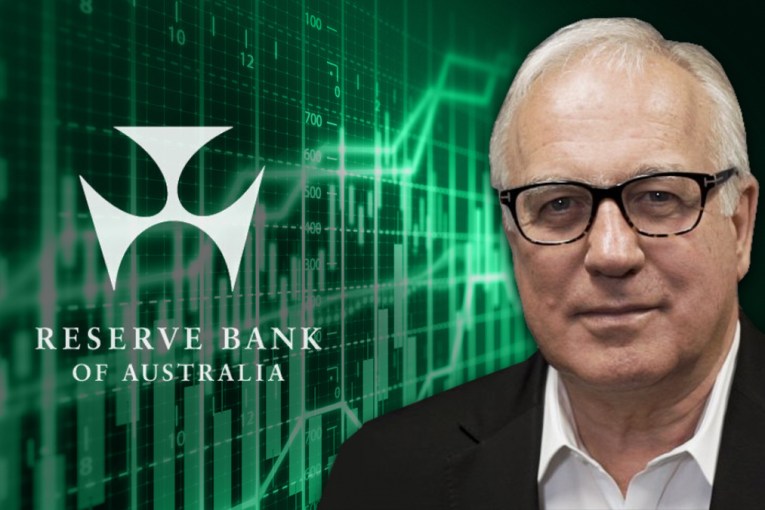Michael Pascoe: The federal election campaign is silent on the issues that count


Politicians want to avoid the big issues this election campaign, writes Michael Pascoe. Photo: AAP
It seems the most extraordinary story: Seven Coalition MPs on the record “have hit back at criticism of Scott Morrison’s broken promise to deliver a federal ICAC, declaring voters aren’t raising the corruption commission”.
It also seems like a story successfully promoted by “Coalition sources”.
To paraphrase, “the punters don’t care about integrity in government, so we don’t need to”.
As far as excuses go for not delivering the integrity commission promised four years ago, it is pathetically, miserably, depressingly weak, albeit still better than Scott Morrison’s actual excuse: “It’s Labor’s fault.”
But the “Don’t Care 7” find some support in the Streem media monitor count of top campaign issues in the first week of the official circus. “Integrity” or “ICAC” didn’t make the top 10 mentions.
The methodology is flawed though, dependent on both what the leading players are trying to headline and what various journalists and editors filter in deciding what is reported.
For example, purely hypothetically, if most of the nation’s newspapers were in a single stable that was blatantly partisan in favouring the current government, the embarrassing ICAC failure might not get much of a run.
For another example, the sordid history of Mr Morrison’s original preselection apparently wasn’t big news in the less hypothetical stable despite journalists and editors there being players, willing or otherwise, in having the original preselection overturned and Mr Morrison installed.
The experience of the Don’t Care 7 is at odds with the polling carried out by the wave of community independents. While the 7 claim voters are not bringing the broken ICAC promise to them, integrity (or the lack thereof) is one of the four hot button issues for the independents.
The Don’t Care 7 also demonstrate politicians preferring to talk about what they want to talk about.
“NSW MP for the seat of Reid Fiona Martin nominated cost-of-living pressures, jobs and lower taxes as voter priorities.”
And so it goes for the 7, nominating the issues the Coalition wants people to concentrate on, given their campaign goals.
(I personally find the idea of “lower taxes” being a top-three voter priority laughable, unless you’re only polling Liberal Party members. And it’s wages, not jobs, that are the issue for most with unemployment at 4 per cent and falling.)

Source: Streem Election Insights, April 17
Instead of concentrating on the slogans politicians want the campaign to be about and what polling and media monitoring suggest are popular issues, it is perhaps more instructive to consider what the election should be about if we want Australia to realise its potential.
Unlike politicians, focus groups and opinion polls looking no further than the evening of May 21, economists are supposed to be able to focus on further horizons, on what might get bigger results for the nation.
Which is why it’s worth considering what The Conversation and the Economic Society of Australia found when they surveyed 50 top economists on what the most important issues should be for the incoming government and the election.
The absolute, clear and overwhelming issue was “climate and the environment”, a point well made by colleague Alan Kohler last week.
On the Streem count though, “environment” only came in third. Unsurprisingly, neither of the major parties wants to go hard on it.
The Coalition’s tawdry record – from Mr Morrison’s lump of coal in Parliament to gaslighting the community with taxpayer-funded advertising of its inefficient and costly climate spending – is not something the government wants to draw attention to, assisted by the climate denialism thread continuing to run through the Murdoch stable.
Meanwhile, Labor only wants to be perceived as being a little better than the Coalition, lest it offend the coal electorates. Or make that, “not as bad as” the Coalition.

Bringing a lump of coal into Parliament trashed Scott Morrison’s green credentials. Photo: AAP
The economists’ second pick as a key issue was housing availability and affordability – but “housing” doesn’t make the top 10 on Streem.
This is extraordinary.
As regular TND readers know, Australia is suffering a housing catastrophe. It is causing genuine hardship for the bottom quartile of households and tearing at the fabric of our society, eventually damaging us all.
The Coalition’s allegiance to the burgeoning landlord class it has fertilised and encouraged brooks no opposition, even while it is damaging the budget with the blowout in Commonwealth Rental Assistance – $5.3 billion last year and growing. The risible Falinski report is a fair representation of Coalition intent.
(As an aside, it seems Mr Falinski has always been quite the spinner, even in his maiden speech.)
And, again, Labor is only trying to be a little better, promising a bit more public housing than the government, but nothing to frighten the horses and nothing on the scale needed to get ahead of the crisis after being burned three years ago for daring to adjust negative gearing and the capital gains discount.
So there’s near-bipartisan agreement not to campaign on housing affordability and availability as neither side is serious about dealing with it.
Number three priority for the economists is health, which topped the week for Streem. Presumably that includes aged care, an issue Labor is attempting to make a major differentiator.
It’s the number four pick though that might best summarise the gap between being all about winning the keys to the Lodge (and Kirribilli House) and Australia’s better future: Tax reform.
You’d have a hard job finding a single economist who doesn’t think we need to reform our tax system. You would find no end of argument and disagreement about exactly what sort of reform, but total agreement that change is necessary for our longer-term benefit.
But any significant reform proposal would be turned into headlines that would offend one group of electors or another and real reform would offend just about everybody, while making us all better off.
So neither side of politics is game to try it.
Merely trimming the odd marginal tax rate is not reform. The current legislated compression of our progressive income tax scales is change, but I have trouble describing degradation as “reform”.
And Fiona Martin’s claim of “lower taxes” being a key voter concern?
That scored exactly zero with the economists – but they’re not trying to hold on to the lurks and perks of integrity-free government.








